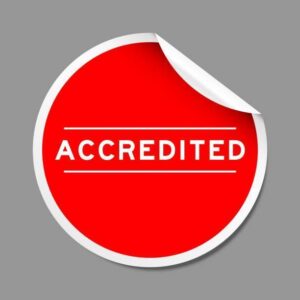DNA testing can provide you with different genetic information you need. The test may help you trace your ancestry, determine paternity, build a family tree, identify your vulnerability to certain illnesses and boost your health. You need the most accurate results to help you achieve these needs; hence, you must select the best laboratory to conduct the tests.
The challenge for many is selecting the best laboratories to conduct these tests. There are many laboratories; hence you need to observe the following guidelines to get accurate DNA testing results.
1. Laboratory accreditation
There are many laboratories in areas like Philadelphia that can conduct DNA testing. You must ensure they have certifications from relevant bodies authorizing the lab to run the tests. Therefore, while selecting the best laboratory for free dna testing in philadelphia pa, ensure they are certified by AABB.
A suitable laboratory should get accredited by bodies such as Departments of Health, Clinical Laboratory Improvement Amendment, College of American Pathologists, ANSI National Accreditation Board, and many more. You can select the best PTC laboratories to conduct the tests.

2. Technical support and experience
Before you select the lab to conduct the DNA, you must observe their experience and the support you get from the laboratory. Select a laboratory with more than five years of experience in offering DNA testing services. The years of experience are critical to ensure the lab has a comprehensive database of DNA data making it easier to cross-reference, which is vital for other needs such as ancestry tracing.
Ensure the company has years of experience dealing with public data. You should ensure the support staff has the experience and knowledge necessary for DNA testing. The company should also have the best support services, such as faster delivery of the results to your home or quicke remailing of the results.
3. DNA kits
Different DNA kits are available today; hence, you must select the one that meets your DNA testing needs. There are different DNA kits, and the best selection should be one that matches the DNA targets you desire. Select the laboratories with multiple DNA kits, as discussed below.
-
• Ancestry DNA: These DNA kits use saliva and swab tests to trace yourancestry, such as African, European, Asian, Jewish, etc.
• DNA paternity tests: These are the DNA test kits ideal for testing paternity. It is ideal for testing a child’s paternity. You can efficiently conduct such tests at home.
• DNA heritage test: The test is ideal for testing and tracing yourheritage. They can also inform you about your ethnic background.
• Sibling DNA tests: These tests are ideal for determining whether you have a twin or if you suspect you are related to someone else. They use the parental DNA to test whether two people are related based on the parental DNA. It is best to combine it with ancestry DNA to get the best results.
• DNA health testing: These are the DNA testing used to identify whether you have any risk factors that make you vulnerable to certain conditions. They trace the existence of genetic and inherited DNAs that can lead to a condition such as cancer, diabetes, obesity, etc.
• Prenatal DNA testing: These tests can reveal the gender of the baby and can get done as early as 8 weeks old. They give paternity tests during pregnancy.
4. Privacy and confidentiality
DNA data is private and confidential, and a leak could lead to consequences such as reputational damage; hence you need a laboratory with the best privacy and confidentiality laws. Go through the privacy and confidentiality laws before you submit the samples for testing. Read the consequences of privacy violations to ensure the lab compensates for any damages, such as the leaking of data.
Ensure you sign a privacy agreement to ensure the lab abides by the agreement. If they do not have an enforceable policy, you need to confirm the laws and policies, and if there is none, you should try another laboratory. Remember that the privacy and confidentiality terms should not be word of mouth but written, signed, and enforced through a legal agreement.
The laboratory should have data security policies and measures to protect the data within its databases. Labs tend to store the DNA data to use for other needs, such as ancestry DNA testing. The best lab should have a reputation for data privacy protection, and many people trust it for their data safety.
5. Accuracy and customer services
An ideal lab should have a reputation for supporting and providing the most accurate results. The lab should have the best accuracy standards that guarantee up to 99.99% data result accuracy, especially when conducting ancestry DNA testing. You can check the accuracy reviews and ensure they implement international standards for supporting DNA results accuracy.
You also need to select a lab that will provide the results within the shortest duration. If you order the DNA kit to your home, the kits should arrive at your home within 24 hours to enable you to test immediately. Ensure that the results are available within the shortest duration, i.e., within two days. Select labs that provide a guideline that helps you understand and use the DNA kits to ensure you get the most accurate results.




